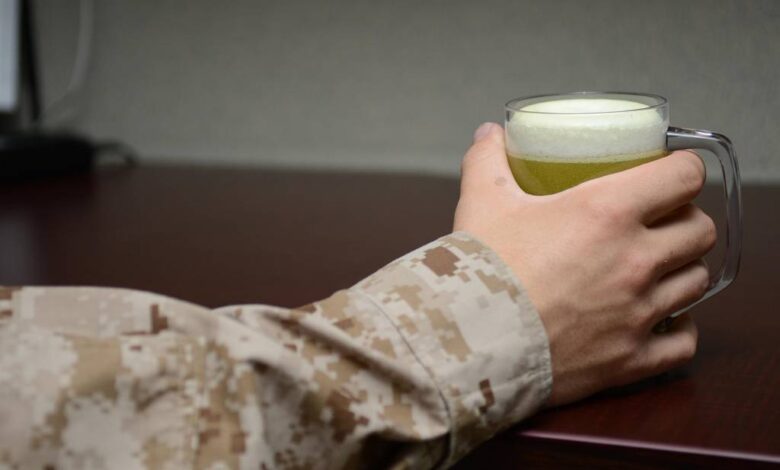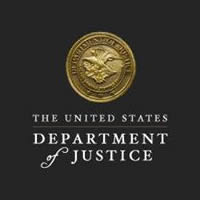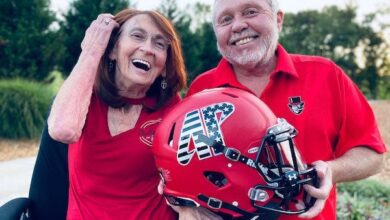Binge drinking, alcohol abuse remains significant challenge for vets

Veterans of every age group are more likely to binge drink or abuse alcohol than Americans who never served, but are also slightly more open to seeking help for those problems than their civilian peers, according to new research released this week by the RAND corporation.
The findings from the RAND Epstein Family Veterans Policy Research Institute follow past studies of high rates of alcohol abuse in the military, indicating those problems do not end when troops leave the ranks.
Researchers did not find similar problems with other potential substance abuse issues. According to federal data, the rate of illicit drug use, opioid misuse, marijuana abuse or any drug use disorder was roughly the same for veterans and non-veterans in recent years.
But alcohol abuse remains a particular problem point for the veterans community. Researchers found nearly 23% of veterans surveyed in federal studies reported binge drinking — four or more drinks in a day for women and five or more drinks in a day for men — in the last month, and about 5% reported having an alcohol use disorder.
RELATED
:quality(70)/cloudfront-us-east-1.images.arcpublishing.com/archetype/7YP2ZJV6ZFGSBFCPFJ437C46IU.jpg)
“Veterans consistently exhibited higher rates of alcohol use disorder than non-veterans in every age group,” the report stated.
The difference was most pronounced among the youngest and oldest age groups. More than 45% of veterans aged 18 to 34 reported binge drinking in the last month, compared to about 37% of non-veterans. Almost 3% of veterans 65 years and older reported an alcohol use disorder, nearly twice as many as non-veterans of the same age (1.5%).
Veterans who served in the Post-9/11 era were more likely to have reported binge drinking issues (37%) than older generations (20%), according to the researchers.
Veterans Affairs leaders have warned for years about the links between substance abuse and lingering mental health problems from military service. Officials from the National Center for Post-Traumatic Stress Disorder in their outreach materials caution that “people might use drugs to help them sleep, relax, or manage situations they would rather avoid, but using drugs and/or alcohol can make PTSD symptoms worse.”
RAND researchers did see positive signs in veterans’ rates of seeking help for substance abuse issues. Their report states that “for every age group, veterans were more likely than non-veteran peers to have received alcohol/drug treatment.”
Again, the difference was most pronounced among the youngest and oldest groups. About 3% of veterans aged 18-34 have received alcohol or drug abuse treatment in the last year, compared to 2% of the general population. The rate for veterans over 65 was almost double that of comparable civilians, although both figures were less than 1%.
The study found that women and LGBTQ veterans were more susceptible to alcohol abuse problems than straight male peers. Those groups were also more likely to report high levels of serious psychological distress and suicidal thoughts.
The full report is available on the RAND website.
Leo covers Congress, Veterans Affairs and the White House for Military Times. He has covered Washington, D.C. since 2004, focusing on military personnel and veterans policies. His work has earned numerous honors, including a 2009 Polk award, a 2010 National Headliner Award, the IAVA Leadership in Journalism award and the VFW News Media award.




